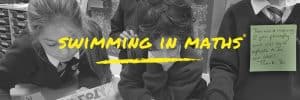What is Swimming In Maths? Find out Here!
If you want to know what Swimming In Maths is all about, below I have provided the main contents of my recent workshop from the School Improvement Maths Conference (May 2017). Feel free to use the contents as you wish as long as you credit me as the original source, thanks 🙂
Before you read on, you must watch this video clip first. So turn up the sound (essential) and make sure its full screen!
Maths Wars – There has been an awakening
Our School
*320 children on roll
*76% EAL children speaking 35 languages
*17% SEN
*A diverse and disadvantaged community
Many of our children join the school at a very early stage of English acquisition. (SEF/ Raise On-line 2016)
Ofsted
Ofsted have focused on how well schools are promoting;
*depth before breadth
*keeping the whole class together despite differences in ability.
*developing conceptual understanding through the use of concrete and pictorial apparatus
*promoting mathematical thinking and developing mathematical language through talk tasks.
National Curriculum 2014
Faced with the challenges presented above, I had to create a culture of high impact and engaging maths that encourages and nurtures;
*fluency (rapid and accurate recall and application of facts and concepts).
*a growing confidence to reason mathematically. Through collaborative challenges (language rich environment) that promote acquisition of mathematical language particularly for those with English as an additional language, low achievers and less confident children.
*the ability to apply maths to solve problems, to conjecture and to test hypotheses. Experimentation with no fear of failure
Behaviour For Learning
Another thing Ofsted inspectors will want to see is evidence that:
“Pupils love the challenge of learning and are resilient to failure. They are curious, interested learners who seek out and use new information to develop, consolidate and deepen their knowledge, understanding and skills. They thrive in lessons…”
Swimming In Maths Achieves the above and so much more!
But why the Theme?
Most of my evenings and weekends are spent pool-side with my two boys who are both swimmers. It can be an extremely boring and a lonely existence but it gives me valuable time to carry-on working marking books, completing assessments etc. (living the dream)
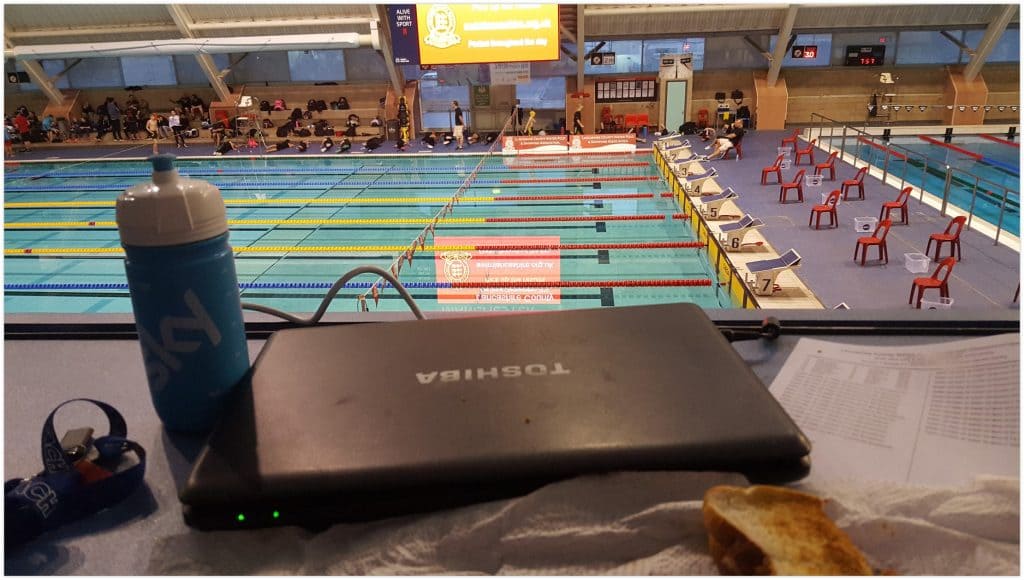
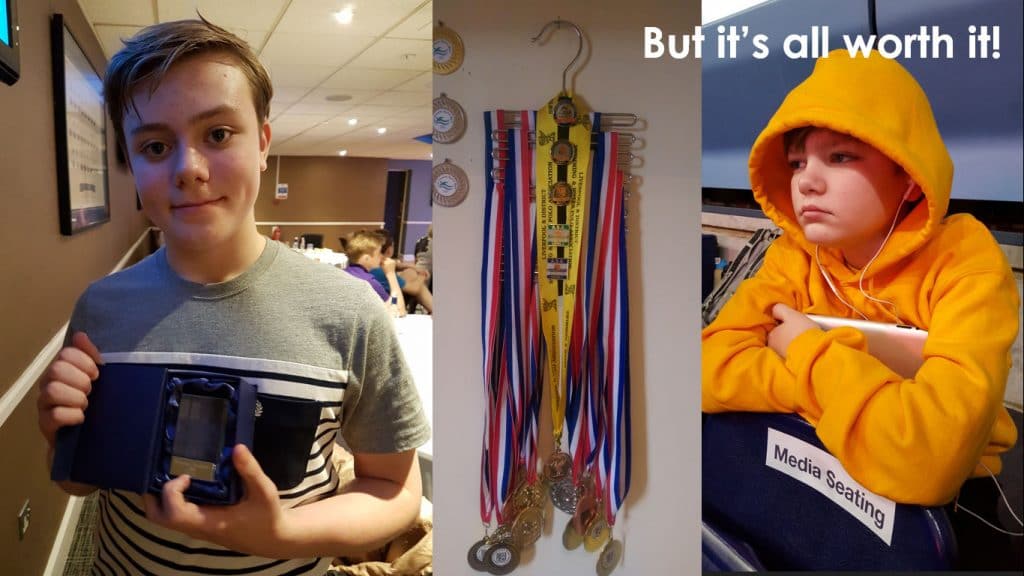
Not long after the new National Curriculum gave us higher expectations to aim for and this nonsensical ‘Mastery’ term, I was sitting in one of Tara Loughran’s inspiring maths courses, I was shown a slide containing descriptions for ‘deepening’ maths. It was at that moment, I came up with the name ‘Swimming In Maths’ as I scribbled down a few website addresses that would have resonance on line and something I could develop back at school, a child-friendly theme linked to the wonders of the ocean!
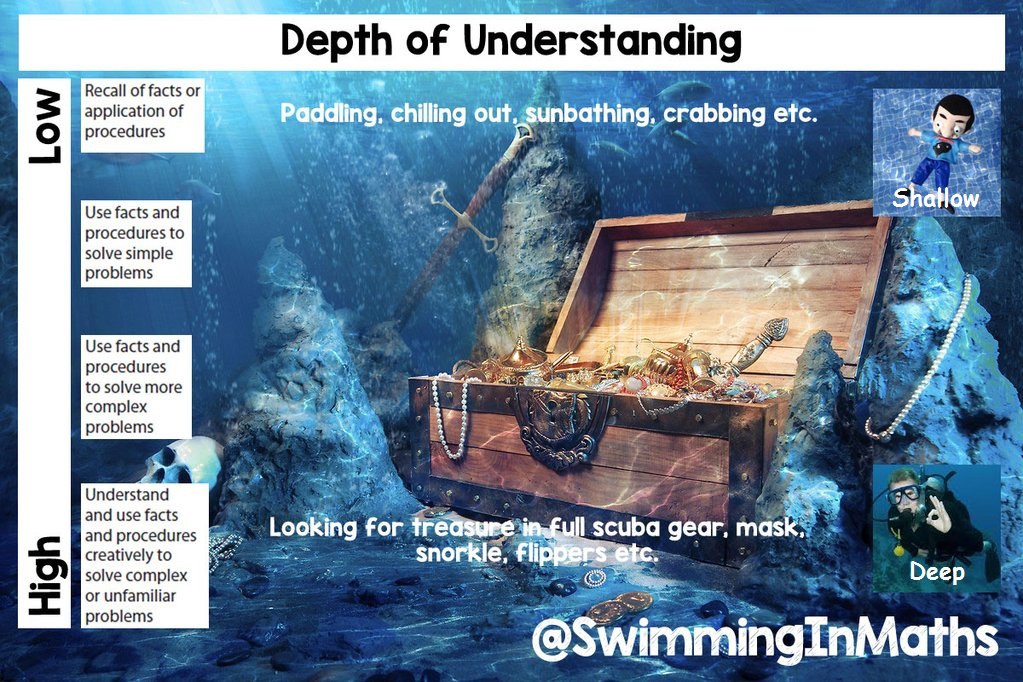
Themed Working Walls and Maths Areas!
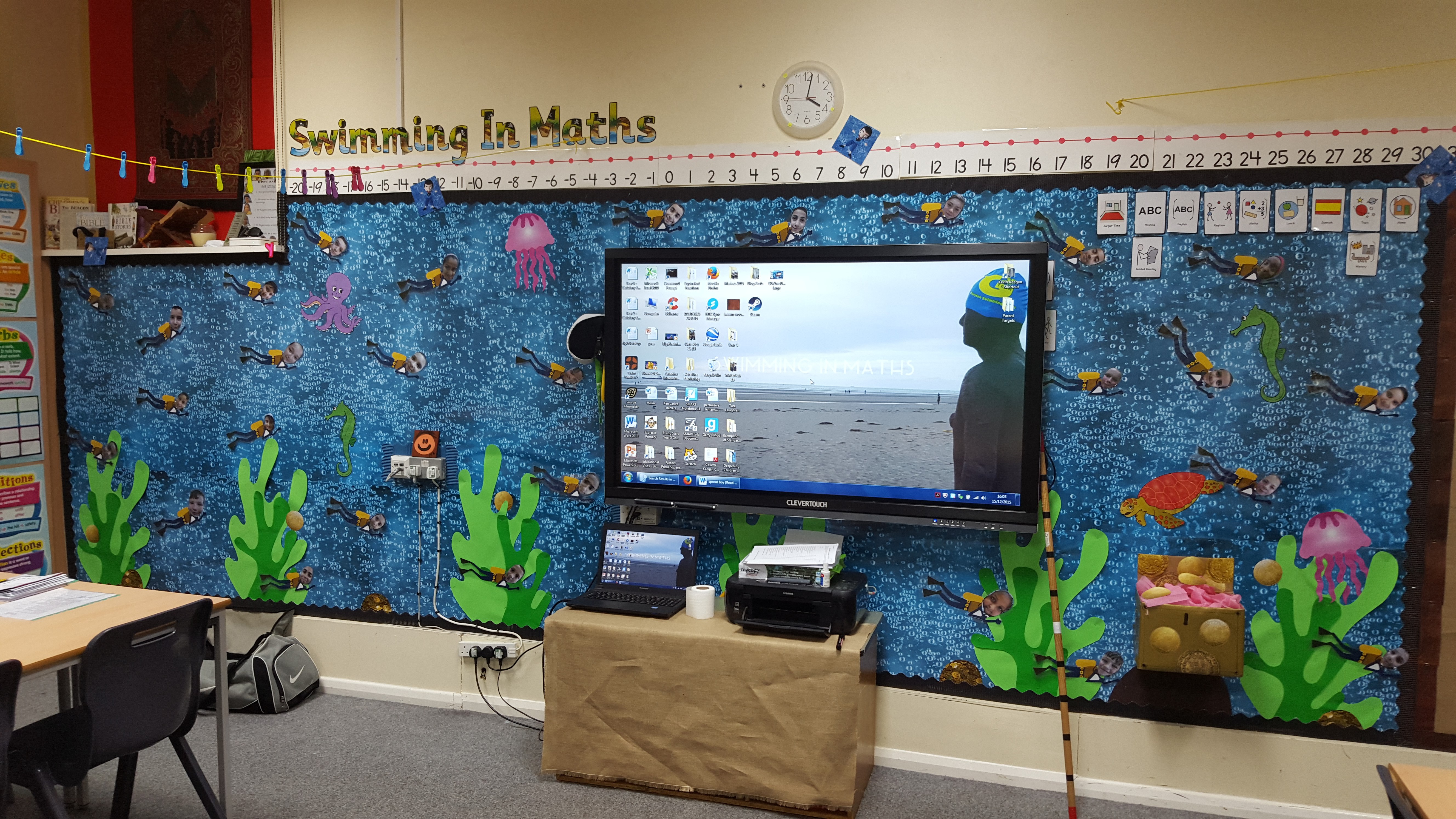
The Deep Dive Challenge was Born!
There’s a way of exposing children of all abilities including EAL in a language rich environment, to problem solving and deepening concepts, allowing children to apply themselves with increasingly difficult and sophisticated problems over time. Collaborative learning opportunities are essential if all children are to feel a sense of achievement and enjoyment maths in school.
Throw them in at the deep end!
Just before the Deep Dive Challenge, prepare them for learning by taking huge breaths, have a quick mental warm-up, choose one child to wear a pair of goggles and swimming cap, play the Jaws Theme tune (or lower down the school present them with a lovely under water youtube clip) and off they go!
Children ‘owning’ their learning!
The collaborative, ‘Deep-Dive Challenge’ at the start of each lesson provides many opportunities for the children to reason mathematically and become fluent through frequent and varied practice with more complex and varied problems which can only be achieved over time.
The earlier children have opportunities to collaborate, the better for all of us on our eternal quest to close gaps and accelerate progress.
No child is left behind and all children are fully engaged in their learning. No one sits down!
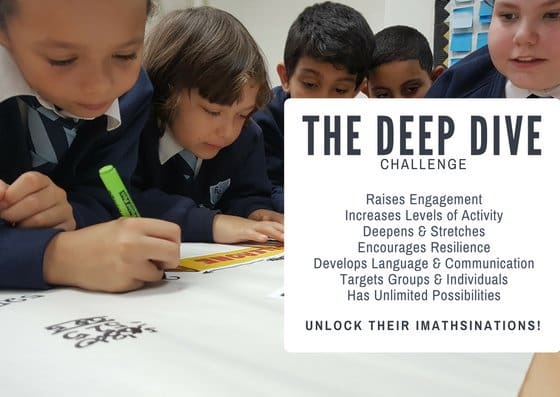
Video Clips – The Deep Dive Challenge
Watch these videos, they show groups of children working together, using mathematical language with a growing confidence!
Video 1
Video 2
The finished challenge looks like this
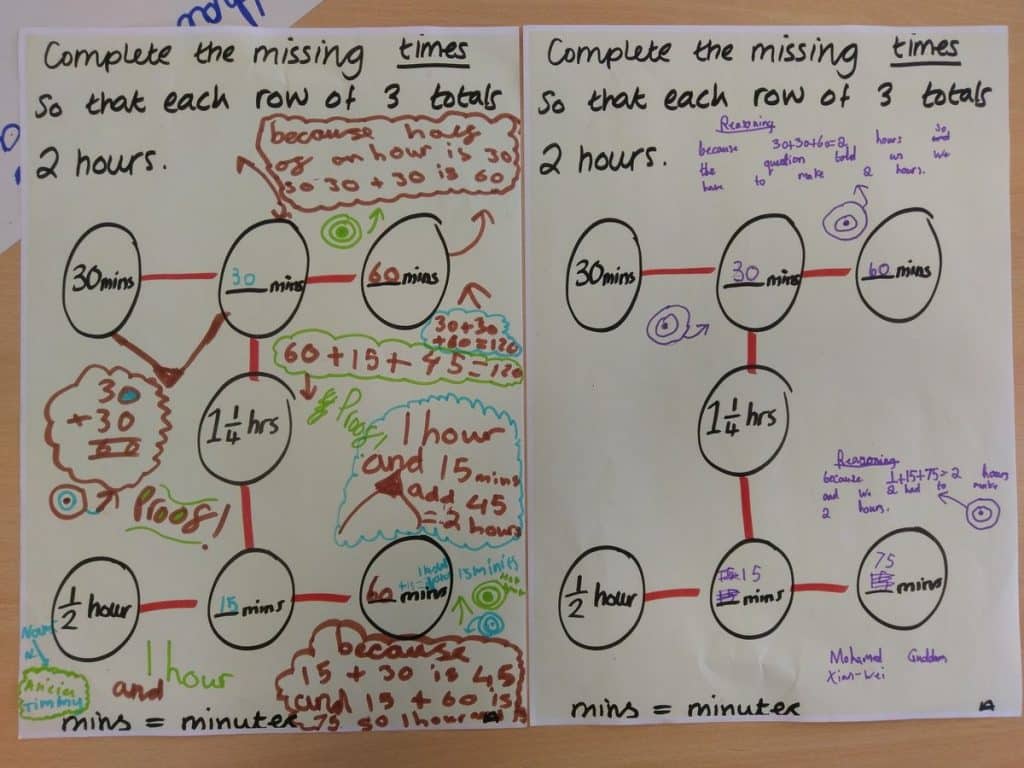
Keep the Deep-Dive Challenge fresh!
The Deep Dive Challenge can take various forms including;
*Word problems
*Puzzles
*True or False questions etc.
*Mastery questions from NCETM, White Rose etc.
*Provide a picture with no instruction ask them to find the maths using their ‘imathsinations’
With experience and modelling, the children lead their own learning journey and you can listen and observe carefully closely, providing feedback, deepening questions, further challenges ‘On The Fly’.
Assessment ‘On The Fly’
Stand back and listen to conversations (armed with a marker pen), their approaches to the challenge presented to them provides opportunities to intervene and support when necessary and also allows you to question and deepen their knowledge and understanding further allowing them to use and apply existing and newly acquired skills.
Where’s The Maths? Unlocking ‘imathsination’ (Maths Imagination)
Of all the deep dive challenges/ collaborative learning opportunities, ‘where’s the maths in that?’ sessions are the most rewarding!
I wouldn’t advise giving this type of open ended activity unless your children have had experience of a more structured ‘Deep Dive Challenge’ like those illustrated previously. They also need to have a range of methods/ strategies ready to use.
It requires a clear, systematic approach that the children manage themselves with targeted input from the teacher/ other adults in the room. Managed carefully, these can open up a whole new way of approaching maths, unlocking their ‘imathsination’ (maths imagination)
Where’s the Maths? City Scapes
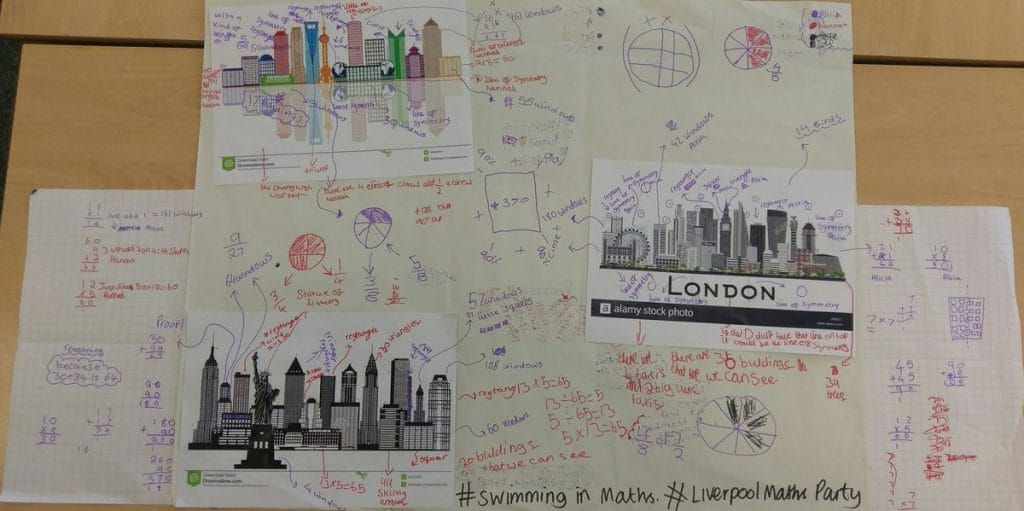
Where’s the Maths? Fidget Spinners
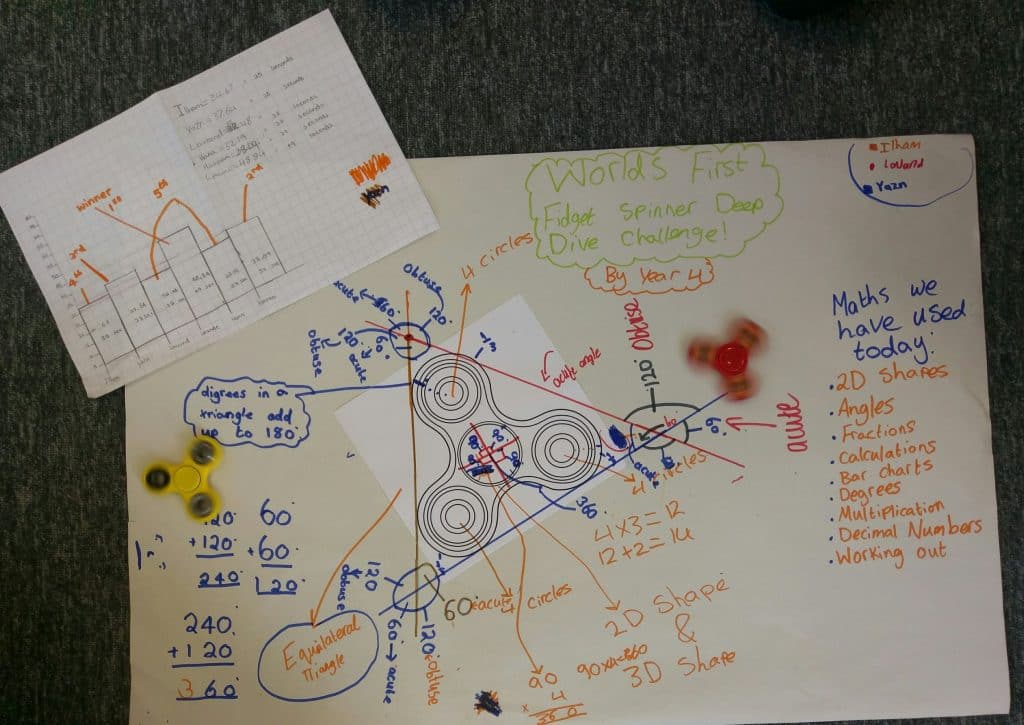
Things to consider
*The daily Deep Dive Challenge should last no more than 15 minutes.
*‘Where’s the maths?’ challenges may require additional time.
*The children are doing the majority of the work.
*Our job is to exploit opportunities to stretch and deepen further via careful targeting of groups and individuals with skilful questioning.
*Keeping evidence of reasoning and deeper learning.
Keeping Evidence – The Messy Maths/ Deeper Learning Book
Keeping evidence of the deep dive challenge is essential. The ‘Messy Maths’ (deeper learning) book is one way of keeping that evidence safe.
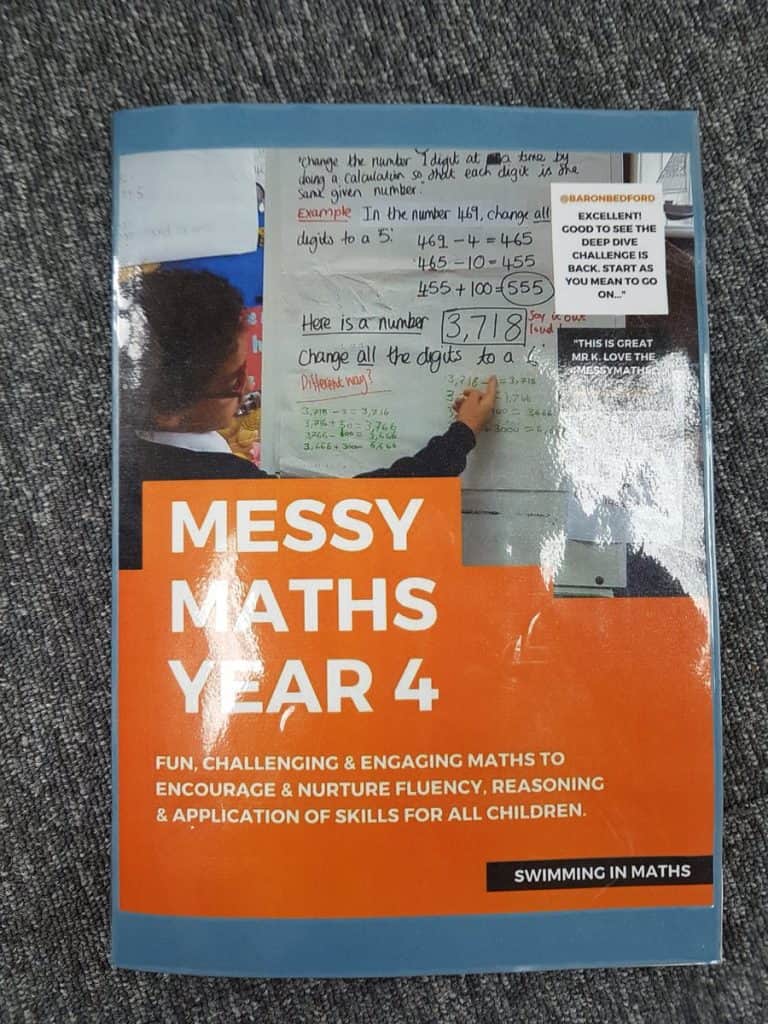
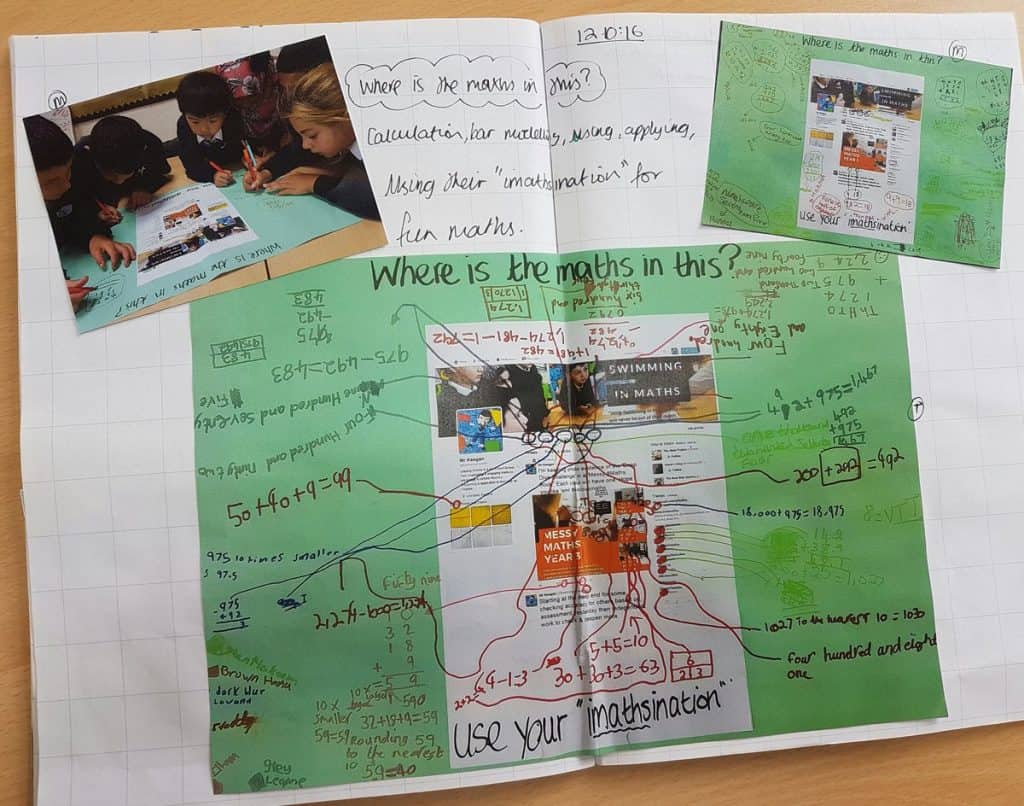
Children Explaining Their Reasoning
*The big question, can you explain your reasoning?
*Prove it!
*What if?
*Correct or incorrect?
During the Deep Dive Challenge, not only do the children have to think about the language they are going to use, they have to consider explaining their reasoning for another audience which provides opportunities to ‘record’ their reasoning!
After The Deep-Dive Challenge
*A return to guided/ independent work to see how well they can apply their knowledge and understanding on their own.
*Opportunities are provided for those who are ready, to deepen again through more challenging problem solving linked to the L.O.
*This has had an instant impact on the children’s independent learning skills and how they apply their knowledge and understanding.
*Further targeted support can be provided from observations made in the Deep-Dive Challenge and opportunities for further deepening of knowledge and understanding, applying skills further etc.
Celebrate achievements!
I award a ‘Deep Diver of the Day’ with a medal (they wear it for the day) to recognise how well they applied skills, knowledge and understanding, developed reasoning language, etc.
Tweet about it! Children love getting ‘likes’ and ‘retweets’ knowing that their work has had impact around the world!
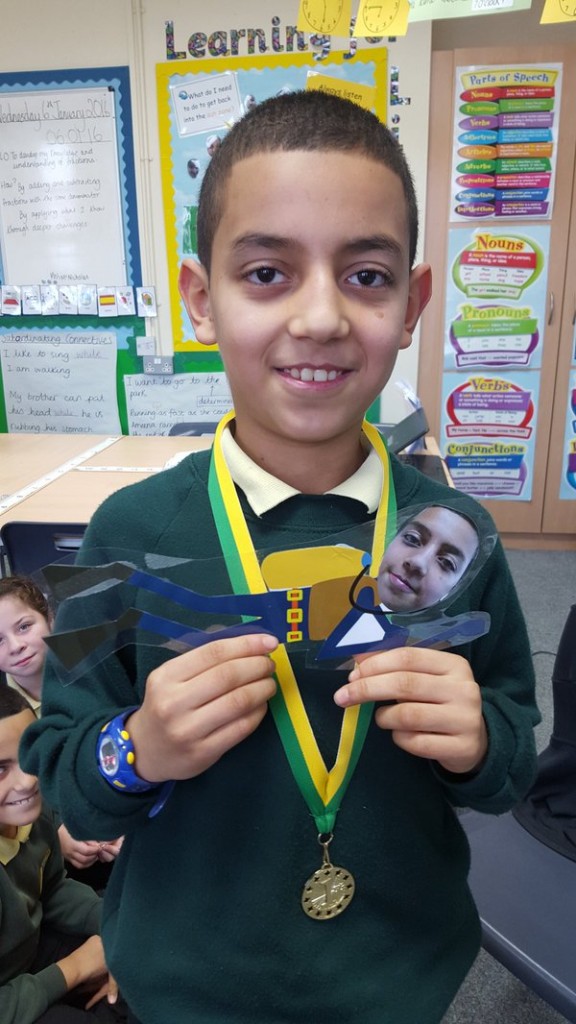
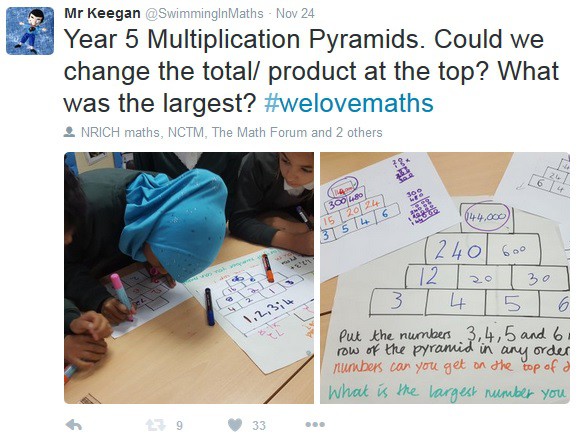
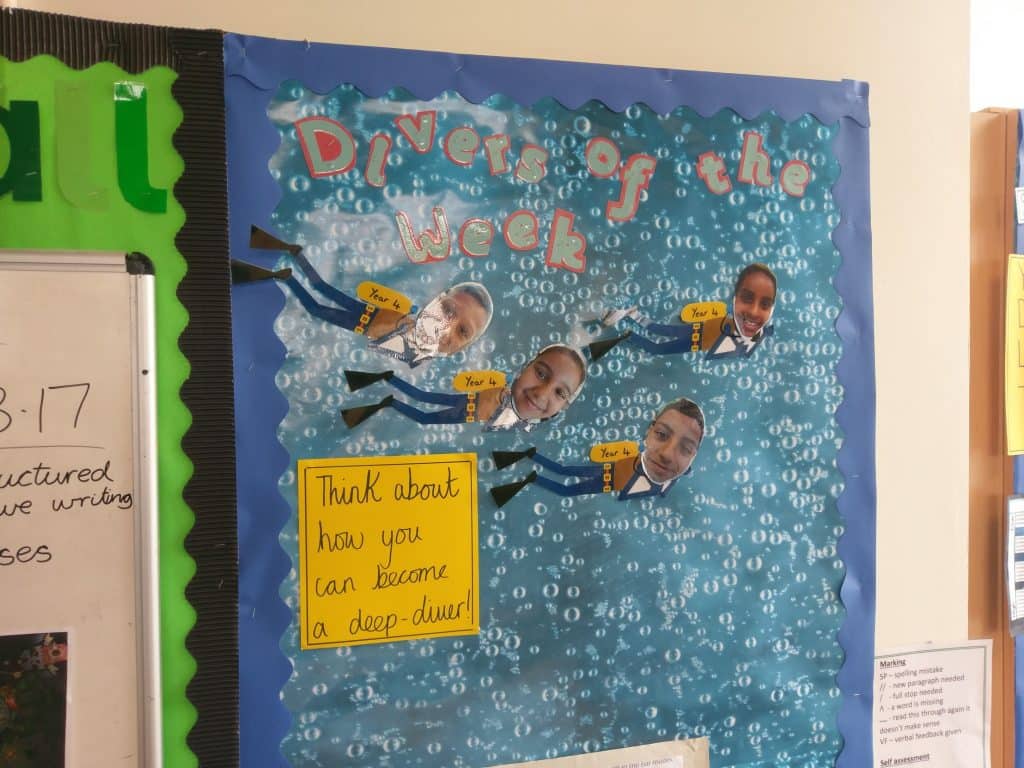
Wider Impact
When I started ‘Tweeting’ work that my children were producing back in November 2015, I couldn’t have imagined how ‘Swimming In Maths’ and in particular the ‘Deep Dive Challenge’ would impact far beyond our local cluster of schools.
What are people saying about ‘Swimming In Maths’? Here are some of the tweets that highlight the positive impact our children’s work has had.

All children should leave maths lessons feeling like Skeletor!
****Futher Reading****
Changing Attitudes to Maths via Parental Involvement Across The School one class at a time
‘Where’s the maths in that? Unlocking maths imagination’
Collaboration Is The Key Which Unlocks Learning
With Swimming in Maths, your children will never be out of their depth
Swimming In Maths as A whole school, child friendly approach towards deepening knowledge & understanding
🙂
